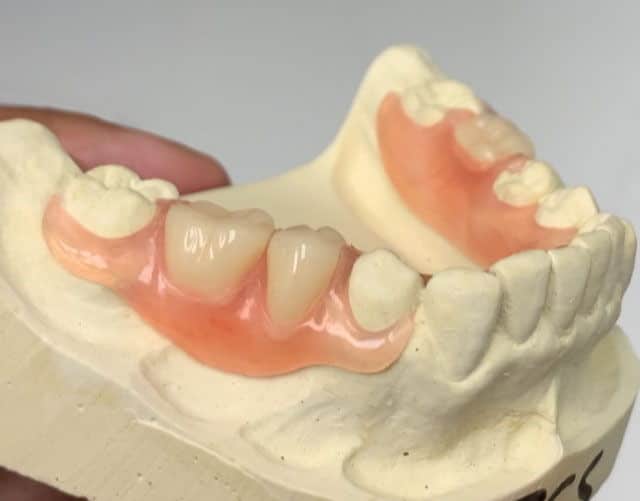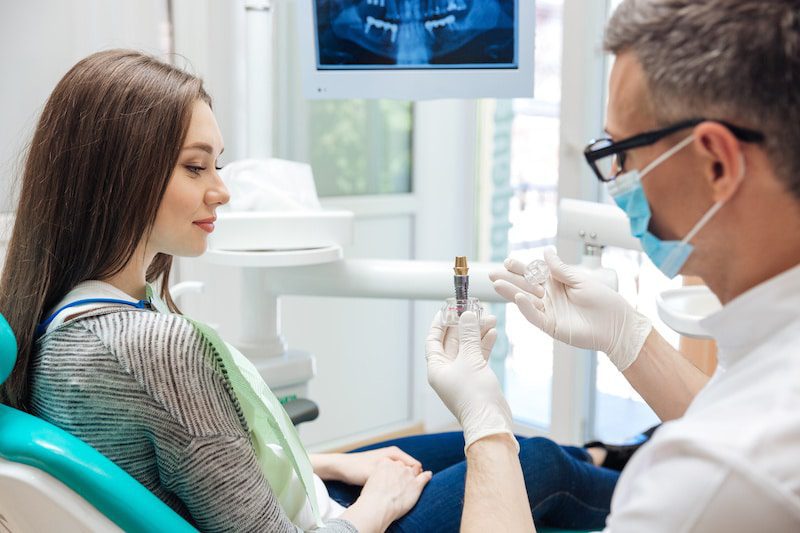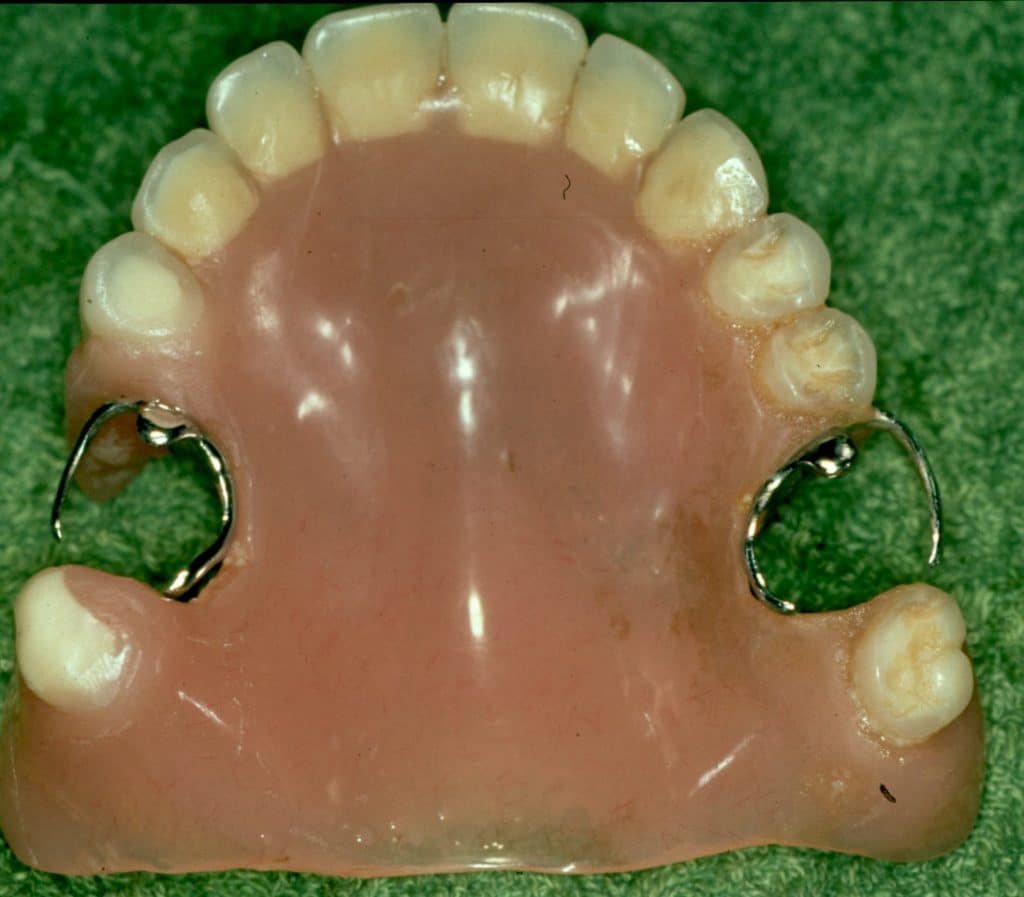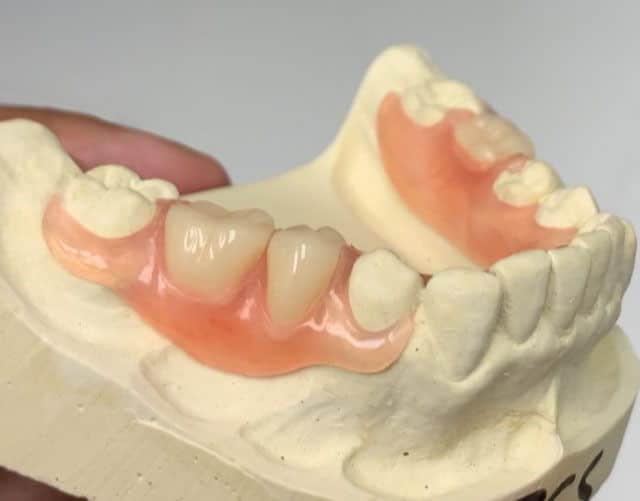The advantage of removable prostheses as a treatment is usually related to cost and installation. Dentures tend to be cheaper than dental implants and don’t require, in most cases, surgical procedures for installation and healing time. To make them the first step is to take an impression of your teeth, to study their position and size. With it, the dentist will create the model prosthesis using the material that will fit your budget and aesthetic needs.
Dentures prevent the displacement of surrounding teeth and maintain the balance of occlusion while offering support for cheeks and lips. Even when it is more simple and cheaper than other kinds of dental prosthesis like implants, dentures require special care and time to adapt, to prevent gum diseases and the loss of natural teeth.






